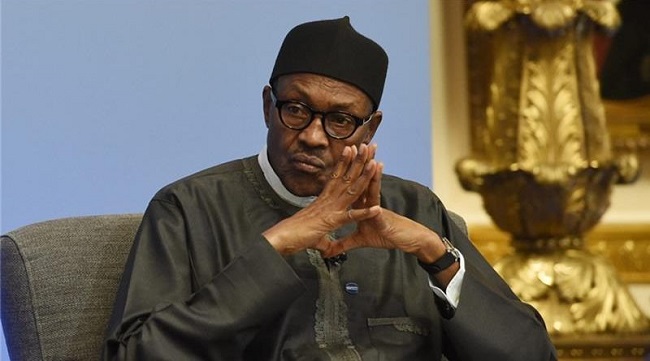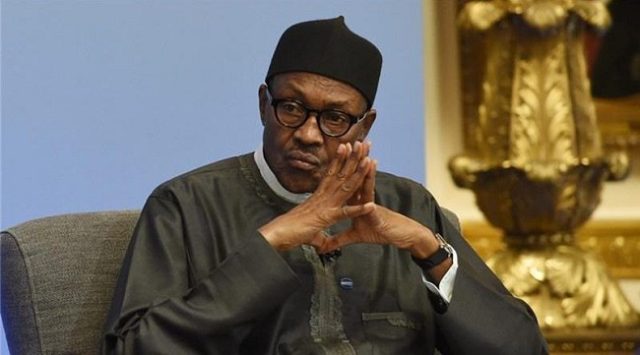
NOTABLE organisations and financial experts on Thursday ex-pressed shock over the revelation by the Director-General, Debt Management Office (DMO), Ms Patience Oniha, that Nigeria’s debt might rise to N77 trillion at the expiration of the tenure of President Muhammadu Buhari in May.
In their various reactions, the Association of the Middle Belt Ethnic Nationalities (ASOMBEN); Yoruba sociopolitical organisation, Afenifere; Activists for Good Governance and the Transformation Monitoring Group (TMG), lamented that the humongous debt portfolio constituted a land- mine for the next political dispensation.
National president of ASOMBEN, Sule Kwasau, who claimed that the de- velopment is a clear indication that the country is in a terrible financial crisis that could snowball into a recession, lamented that such revelation was com- ing less than five months to the end of the tenure of the Buhari administration.
“It shows we are in a deep financial crisis and we are likely to go into a deep recession. You can imagine the way and man- ner in which this outgoing administration has been borrowing from left and right to finance dubious projects with less than five months to go.
“You can see how they have been collecting loans to finance the budget. This is the largest budget of any Nigerian government and substantial parts of these loans are going towards debt servicing, so there would be less money for capital projects.
“You know full well that Nigeria’s budget has never been 100 percent implemented and this is an election year, you know how our elections are financed.
“If we are not careful, part of this might be diverted towards the election. For me, this country is in chains and I pray our indebtedness doesn’t enslave us.
“The loan from China is nothing but a trap. We should know that if we are unable to pay one day, they will take over our national assets like they have done in other African countries.
“This government is not fair to Nigerians and to the generation yet to be born,” he said.
Kwasi said the debt relief the administration of former president, Chief Olusegun Obasanjo, secured for the country, had been bastardised by the present administration.
“This debt is a landmine and Bobby’s trap for the incoming administration to guarantee that it failed,” he said.
Also, a former Nigerian Ambassador to Ukraine, Ibrahim Kassai, said the next administration could end up paying the accumulated loans at the expense of focusing on its plan for the citizens of the country.
According to him, borrowing has become a routine in Nigeria under successive administrations, adding that it is un- fortunate that none of the presidential candidates is discussing how to ameliorate or tackle the situation.
He said it was time Nigeria buried the idea that, “If you don’t borrow, you can’t grow,” as “it is an old theory that has put Nigeria and other African countries in a financial mess.”
On its part, Afenifere noted that the rising debt profile should be a source of worry because of the frightening level of poverty among the people.
Speaking through its spokesman, Comrade Jare Ajayi, the Yoruba group said the development is equally worrisome because the economic power that could offset such debt was vitiating as epitomised by the report of the National Bureau of Statistics (NBS), which described 63 percent of Nigerians as suffering multi-dimensional poverty.
“Nigeria is accumulating more debts at a time that the poverty level of the people is also going up and at a time that the indices of development and industrialisation are retreating, at a time the welfare of the people is not only decreasing but hopelessness is at an all-time high.
“The country’s debt profile is unjustifiably increasing at a time when the eco- nomic power that would have offset such a huge debt is vitiating as epi- tomised by the revelation of the National Bureau of Statistics, which described 63 percent of Nigerians as suffering ‘multi-dimensional poverty’.
“In this kind of situation, piling up more debts, especially when the debt profile is not reflected in concrete infrastructural developments and quality services, gives one reasons to worry a lot, not only for oneself but also for the in-coming administration,” Ajayi said.
National coordinator of Activists for Good Governance, Comrade Declan Ihekaire, warned that rising debt profile constituted a booby trap for incoming administration.
According to him, the country’s rising debt pro- file will lead to a state of calamity where Nigerians will advocate for a revolution.
He alleged that some of the loans were incurred without recourse to the Fiscal Responsibility Act.
He said: “It will take a long time for us to over- come. These debts were incurred without deference to the Fiscal Responsibility Act.
“Another concern was the fact that those loans were incurred for frivolous spending, driven by consumption. The economic managers of the government haven’t handled debt. accumulation well. It is going to be a huge burden, particularly when you take commercial debt with high interest rates.”
Speaking on the huge debt burden, Executive Director/CEO, CCEPE Convener, coalition of civil society organisations on Open Government Part- nership (OGP) in Kwara State, Abdurrahman Akindele Ayub said debt itself is not a bad thing, the government, however, should look inward on how to generate revenue to de- fray the debt.
“Inasmuch as no country or economy can survive without debt, loan or support, the government should start looking in-ward.
“The debt is becoming too much and cumulative.
We should start finding a way to diversify our economy instead of depending on what item. We should find a way to raise our revenue, get more resources to fund our budget. A look at our current budget is about N21 trillion, the highest so far in our demo- cratic experience.
“To the incoming administration, it’s not really a landmine. It’s just that it’s something that the next president or whoever forms next government should look at, to see how to structure it because debt restructuring is permissible,” he said.
Many Nigerians will suffer, says economist
Reacting, Mr Cijeyu Ojong an economist, chartered accountant and public financial manage- ment expert, said the im- plication on the masses of a likely debt overhang would be the inability of government to embark on economic development.
He explained that when the government devotes a large chunk of its revenue to service debt, it would be left with very little amount of money to provide basic amenities to the citizens.
Ojong said, “The implications on the people are that there would not be adequate funds to import petrol. Many contractors will not get paid for work done, capital and foreign exchange markets will be affected adversely, the nation will witness ex- change rate volatility and instability and inflation will spike.
“All these will impact negatively on the stand- ard of living of the people, many of whom are currently struggling to eke out a living.”
APC’s irresponsible governance cause of projected N77trn debt —PDP
The Peoples Democratic Party (PDP) has blamed the N77 trillion debt pro- jection on what it called irresponsible nature of the President Buhari-led All Progressives Congress (APC) government.
National secretary of the party, Debo Ologunagba, in a chat with Nigerian Tribune on Thursday, re- gretted that Nigerians failed to heed the party’s warnings in that past on the lack of capacity of the ruling party to govern.
The PDP spokesman ob- served that the nation is now in a bad shape be- cause of the incompetence of the APC, recalling how the PDP administration had successfully negoti- ated and restructured over $30 billion debt during its time.
He assured Nigerians that the party’s presid- ential candidate, Atiku Abubakar, who was vice president when the $30 billion debt was taken care of, will return and rectify the ills of the present ad- ministration.
We fear for Nigeria’s sovereign credit rating — Economic experts
Chief Executive Officer of Centre for the Promotion of Private Enterprise, Dr Muda Yusuf, said although government tends to ar- gue that the conditions is not a debt problem, but a revenue challenge, debt becomes a problem if the revenue base is not strong enough to service the debt sustainably.
According to him, “What is needed is the political will to cut expenditure and undertake reforms that could scale down the size of government, reduce governance cost and ease the fiscal burden on the government.”
Chief Executive Officer of Economic Associates, Ayo Teriba, faulted the government’s approach to borrowing, which, ac- cording to him, was fiscally imprudent, regressive and unsustainable in the light of global development.
He also pointed out that tying debt to tax revenue was no longer tenable due to what he attrib- uted to the impact of the recession, COVID-19 and devaluation ruined the in- come base of the people.
Fiscal Policy Partner of PwC Nigeria, Mr Taiwo Oyedele, lamented that the government is bor- rowing to pay salaries or generally for recurrent ex- penditure, which is against the law and not sustainable.
He premised his position on Section 41 of the 2007 Fiscal Responsibility Act which, according to him, clearly defines what federal, state and local government could borrow domestically or externally.
He challenged the Federal Government “to urgently review its expenditure efficiency and priorities. Only recurrent expenditures that are expedient should be incurred most prudently.
Corroborating Oyedele’s views, analysts at Afrinvest (West) Africa Limited, said in a base case scenario, the deficit to GDP rate would settle around 3.7 per cent, implying a sustained breach of the 3.0 per cent cap stipulated in the 2007 Fiscal Responsibility Act.







